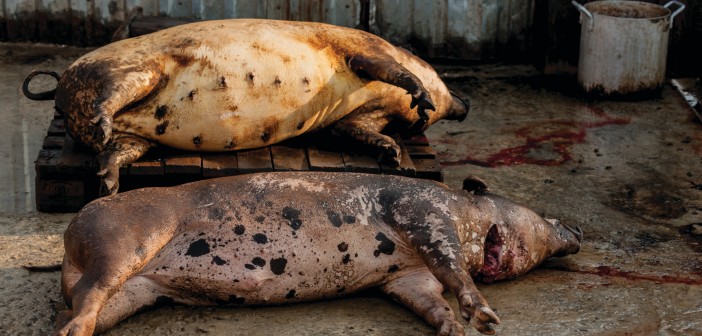Greece has become the latest European country to confirm African swine fever, after the virus was found in domestic pigs in the north east of the country.
The Greek Ministry of Agriculture announced on Wednesday that the disease had been detected for the first time in the country at a small pig farm in the region of Serres, Ekathimerini.com reported.
North east Greece borders Bulgaria where the virus has been spreading in domestic pigs and wild boar since last summer.
Infection was confirmed after tissues of the dead pig to the Athens Veterinary Centre, a reference laboratory for the diagnosis of the disease.
In an emergency meeting held at the ministry, Agriculture and Food Minister Makis Voridis and other officials announced a series of measures to contain the spread of ASF to other regions.
This includes a ban on the export of all swine products, including meat, food, sperm and eggs, utensils and other related waste from the region, while no live pigs can be transferred out of the region. Serres veterinarian centres, police, port and government authorities have been placed on alert.
There have been 138 cases of ASF in wild boar in Bulgaria since November 2019 to date and 49 cases in domestic pigs since July 2019, according to the latest APHA ASF update.
Some cases were close to the borders of currently ASF-free North Macedonia and Greece, both
of which were already on high alert, having been identified as two of the nine Balkan countries to have a very high chance (66-100%) of disease spread within a year, in a recent European Food Safety Authority risk assessment.
Greece has recently increased both passive and active surveillance, close to the border with Bulgaria for domestic pigs, and throughout the country for wild boar. Additional laboratory resource for analysing ASF samples is being prepared, APHA said.




